


From Novices To Seasoned Chefs
Culinary expertise is a fascinating journey that has the power to transform your relationship with food. Whether you are a novice in the kitchen or a seasoned chef with years of experience, the world of culinary arts offers something for everyone. In this article, we will explore the idea that culinary expertise is not reserved for the professionals but can be accessible and enjoyable for all
Cooking As An Art: Cooking is often referred to as an art, and like any art form, it has a wide spectrum of skill levels. For those who are just starting, it can be a daunting and sometimes intimidating experience. However, it's essential to understand that everyone, regardless of their background, can embark on this journey. Culinary expertise is not defined by the number of Michelin stars a chef holds but by the love, dedication, and enthusiasm one brings to the kitchen.
Education And Learning:  For those new to the culinary world, there is an abundance of resources available to help you learn the basics. Cookbooks, online tutorials, and cooking classes are fantastic tools for building a strong foundation. These resources offer clear and concise instructions that empower novices to recreate delectable meals with ease and confidence.
For those new to the culinary world, there is an abundance of resources available to help you learn the basics. Cookbooks, online tutorials, and cooking classes are fantastic tools for building a strong foundation. These resources offer clear and concise instructions that empower novices to recreate delectable meals with ease and confidence.
Exploring New Horizons: As you gain confidence and experience in the kitchen, culinary expertise opens the door to endless possibilities. You can start experimenting with different ingredients, cooking techniques, and flavor combinations. Trying new recipes and exploring various cuisines becomes a source of joy and adventure. The thrill of creating something new and delicious becomes the driving force for many home cooks.
Healthy Eating And Nourishing Meals: Culinary expertise is not just about creating indulgent dishes. It's also about making informed choices for a healthier lifestyle. From scrumptious breakfast options to satisfying lunches and delightful dinners, a culinary journey can incorporate nutritious and wholesome recipes that enhance your well-being. This ensures that everyone can enjoy the benefits of cooking, from improved health to enhanced culinary skills.
Family And Loved Ones: Cooking is a universal language of love and care. Whether you are cooking for yourself, your family, or your friends, the ability to create delicious and nutritious meals brings people together. Sharing homemade dishes is a source of joy, bonding, and togetherness, making culinary expertise a gift that keeps on giving.
Culinary expertise is not an exclusive club for the professionals; it's a welcoming and inclusive journey that's open to all. Whether you're a kitchen novice taking your first steps or a seasoned chef looking to expand your horizons, the world of culinary arts has something to offer you. The joy of cooking, the satisfaction of creating delightful meals, and the ability to nourish yourself and your loved ones are at the heart of this culinary adventure. So, grab your apron, embark on your culinary journey, and savor the delicious results of your efforts, no matter where you are on the path to expertise.
More Than Just A Full Stomach
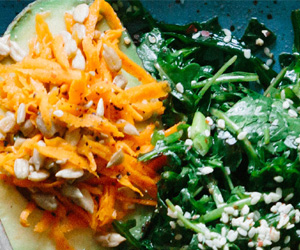 Comfort And Tradition: Certain dishes and meals hold a special place in our hearts due to their comforting and traditional nature. These are the meals that evoke childhood memories, cultural heritage, and the warmth of home. A bowl of grandma's soup or a holiday feast can provide a sense of nostalgia and security, offering more than just physical satisfaction.
Comfort And Tradition: Certain dishes and meals hold a special place in our hearts due to their comforting and traditional nature. These are the meals that evoke childhood memories, cultural heritage, and the warmth of home. A bowl of grandma's soup or a holiday feast can provide a sense of nostalgia and security, offering more than just physical satisfaction.
Mindful Eating: Mealtime satisfaction also embraces the concept of mindful eating. It's about being present in the moment, savoring each bite, and appreciating the nourishment that food provides. Mindful eating encourages us to eat with intention, to listen to our bodies, and to make conscious choices about what and how we consume.


Savoring The Culinary Magic
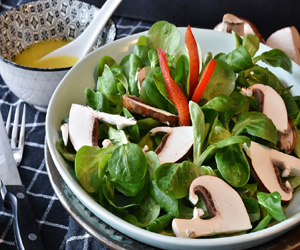 A Culinary Journey: Delightful dinners often take you on a culinary journey. They can transport you to different parts of the world, allowing you to savor the flavors of exotic cuisines. This culinary exploration is not limited to professional chefs; anyone with a passion for cooking can embark on this adventure. With the right ingredients, recipes, and a dash of curiosity, you can bring the world to your dinner table.
A Culinary Journey: Delightful dinners often take you on a culinary journey. They can transport you to different parts of the world, allowing you to savor the flavors of exotic cuisines. This culinary exploration is not limited to professional chefs; anyone with a passion for cooking can embark on this adventure. With the right ingredients, recipes, and a dash of curiosity, you can bring the world to your dinner table.
A Taste Of Wholesome Goodness
 Transparency And Trust: Farm-fresh foods often come with a story. You can meet the farmers and producers, learn about their practices, and even visit the farms. This transparency fosters a sense of trust and a deeper connection to the food you eat.
Transparency And Trust: Farm-fresh foods often come with a story. You can meet the farmers and producers, learn about their practices, and even visit the farms. This transparency fosters a sense of trust and a deeper connection to the food you eat.
Support For Local Communities: By choosing farm-fresh, you are not just savoring great taste; you're also supporting local communities and economies. Small-scale farmers and producers often rely on local sales, and your patronage helps ensure their livelihood.
Environmental Impact: Farm-fresh foods typically have a smaller carbon footprint. Shorter transportation distances mean fewer emissions, contributing to a more sustainable food system.
Understanding The Basics
 Bread And Baked Goods: Wheat-based bread, pastries, and cakes are rich in gluten.
Bread And Baked Goods: Wheat-based bread, pastries, and cakes are rich in gluten.
Pasta: Traditional wheat pasta is a gluten-containing staple.
Cereals: Many breakfast cereals are made from gluten-containing grains, though gluten-free alternatives are available.
Beer: Most beers are brewed with barley or wheat, making them a source of gluten.
Processed Foods: Gluten can hide in various processed foods, from salad dressings to sauces, and even some candies.
Pizza: Pizza crust is traditionally made from wheat dough, but gluten-free options are widely available.
Flour And Breading: Flour derived from wheat is used for breading, thickening, and in baking.
Health Considerations
For the vast majority of people, gluten-containing foods are a safe and nutritious part of their diets. However, for those with celiac disease, an autoimmune disorder, consuming gluten can have severe health consequences, as it triggers an immune response leading to damage in the small intestine.
Unprocessed Foods And Their Vital Role In Health
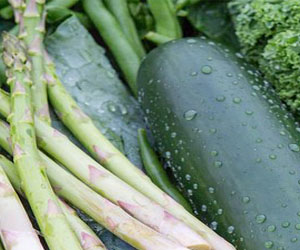 Rich In Nutrients: Unprocessed foods are loaded with vital nutrients. Fresh fruits and vegetables, for instance, provide an array of vitamins, minerals, fiber, and antioxidants that are essential for overall health. These nutrients are not only abundant but also easily absorbed by the body.
Rich In Nutrients: Unprocessed foods are loaded with vital nutrients. Fresh fruits and vegetables, for instance, provide an array of vitamins, minerals, fiber, and antioxidants that are essential for overall health. These nutrients are not only abundant but also easily absorbed by the body.
Low In Harmful Additives: One of the major drawbacks of processed foods is the presence of artificial additives, including trans fats, high-fructose corn syrup, and excessive sodium. Unprocessed foods are devoid of these harmful additives, reducing the risk of health issues such as obesity, cardiovascular diseases, and high blood pressure.

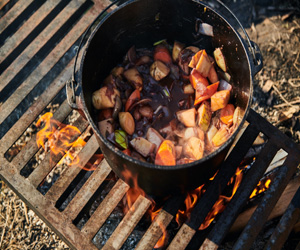
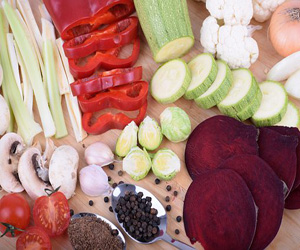


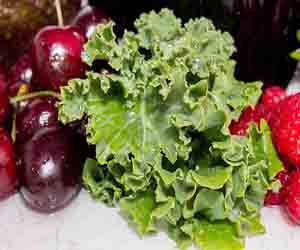
The Aromatic Soul Of Mediterranean Cuisine
 Basil: Basil is another herb synonymous with Mediterranean cuisine, particularly Italian dishes like pesto. This herb's sweet and slightly peppery notes add freshness to salads and brighten up sauces. Basil is a staple in the Mediterranean diet and is appreciated not only for its taste but also for its potential anti-inflammatory and antibacterial properties.
Basil: Basil is another herb synonymous with Mediterranean cuisine, particularly Italian dishes like pesto. This herb's sweet and slightly peppery notes add freshness to salads and brighten up sauces. Basil is a staple in the Mediterranean diet and is appreciated not only for its taste but also for its potential anti-inflammatory and antibacterial properties.
Rosemary: With its pine-like aroma and robust flavor, rosemary is a quintessential Mediterranean herb. It's often used in roasting meats and vegetables, infusing dishes with a delightful earthiness. Rosemary's association with improved memory and cognitive function makes it a symbol of both taste and health in Mediterranean cuisine.
Thyme: Thyme's aromatic and slightly minty notes make it a versatile herb in Mediterranean cooking. It's used in a wide range of dishes, from soups and stews to grilled seafood. Thyme is also valued for its antimicrobial properties and potential to boost the immune system.
A Taste Of Nostalgia And Culinary Delight

The appeal of classic comfort food extends beyond its sentimental value. These dishes are designed to satisfy not only our physical hunger but also our emotional cravings. Take, for example, a steaming bowl of chicken noodle soup. Its rich, savory broth and tender chunks of chicken soothe the soul and provide a sense of well-being. A slice of warm apple pie with a scoop of vanilla ice cream can transport us to a place of pure joy and indulgence. Whether it's the crispy, golden exterior of fried chicken or the creamy, cheesy layers of lasagna, classic comfort food speaks to our hearts as much as it does to our taste buds.
Classic comfort food varies from region to region and culture to culture. In the American South, it might be a plate of buttery, flaky biscuits and sausage gravy. In Italy, it could be a hearty bowl of spaghetti carbonara. In Japan, it might take the form of a comforting bowl of ramen. The diversity of classic comfort food reflects the rich tapestry of global culinary traditions, each offering its unique take on the concept of culinary solace.